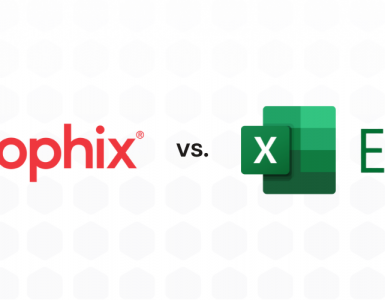 Embrace inclusion and eliminate intolerance, prejudice and exclusion.
Embrace inclusion and eliminate intolerance, prejudice and exclusion.
The Canadian division of the Chartered Global Management Accountants (CGMA), a partnership between the British CIMA and American AICPA, held its 2016 annual conference in Toronto. This year the conference had a slightly different emphasis as it was about “Diversity and Inclusion as a Source of Competitive Advantage in a Global Economy”. At this meeting of accountants there was no talk about accounting, tax, audit, budgeting or planning. Indeed, it was fitting for group of accountants, who originated in various parts of the world, to talk about the economic advantages to be gained from respecting, engaging, employing and including all people from everywhere, with all our specific characteristics, as equals in every way.
Speakers at the conference spoke of research that demonstrates how diverse, inclusive corporations and communities have proven to be stronger, more productive, more creative and more successful than monoculture organizations and societies. One speaker commented there is evidence to believe that a 1% increase in employee diversity will lead to 9% increase in revenue. The reason being that exclusive communities and organizations are channelled and constrained in their thinking and behaviors. They are less adaptable. McKinsey & Company have published many reports about diversity and inclusion. I reference one in particular, “Is there a payoff from top-team diversity?” by Thomas Barta, Markus Kleiner, and Tilo Neumann, McKinsey Quarterly, April 2012 (Report) . It states: “for companies ranking in the top quartile of executive-board diversity, ROEs were 53 percent higher, on average, than they were for those in the bottom quartile. At the same time, EBIT margins at the most diverse companies were 14 percent higher, on average, than those of the least diverse companies (exhibit).”
Central to the conference theme were the combined factors of migration and globalization. Indeed, it was entirely fitting that the conference be held in Toronto, home to the most diversified population of all cities in the world. The conference received record attendance over prior years, with 600 people signed up. The audience consisted of a veritable sea of representatives of human beings, male, female, colours, features, abilities, disabilities, accents from many parts of the world, which, by the way, is representative of the many countries in which CIMA has members, including myself. Along with the easily discernible differences come invisible characteristics such as religion, personal values and preferences, all of which were, no doubt represented in the room.
I recall, perhaps 20 years ago, being appointed Chairman of the CIMA Canada branch when many people were immigrating to Canada from Europe, Asia, Africa and elsewhere. We spoke to each other with different accents, with different English language abilities and yet we all had a common drive. That was to live, work and raise our families in Canada, possibly the most politically stable and safe country in the world. Canada had accepted us all from wherever we came.
20 years later, the numbers have multiplied and CIMA has partnered with the American Institute of Certified Public Accountants (AICPA) to create the biggest association of management accountants globally. Today, the promise for millions of us who have immigrated to Canada from countries all over the world has been met. Those same faces from 20 years ago have settled down and achieved their goals, adapted and prospered. Now we are all part of the human fabric that Toronto has become.
With the success of migrants and refugees who landed in Canada over years, the country has enjoyed increased prosperity. Now, more people continue to enter Canada from around the world and they will both enrich our society and expand the economy. All of this is because Canada is a welcoming inclusive society, it is safe and it is becoming more so, as it should.
Apart from being present to learn from the conference, I had the pleasure to participate in a special lunch for members, which was sponsored by Prophix Software Inc. Prophix produces market leading Corporate Performance Management (CPM) software. Prophix is one of the fastest growing companies in its segment. I was invited to speak to the approximately fifty CGMA’s present about how CPM automates financial and management reporting and simplifies planning and budgeting substantially. In doing so it helps people make more informed decisions and improve organization performance while permitting the valuable time of financial professionals to be redirected to becoming true business partners. The topic seemed quite fitting because it addressed data integration, improved financial processes and organization performance.
The conference concluded with panel of business leaders representing several corporations including a global, Canadian based bank, Canada’s largest food company, the worlds biggest professional service company, the founder and CEO of the Canadian Centre for Diversity and Inclusion as well as the Chair of the American Institute of Certified Public Accountants. Panel members were clear on several great points. One being that diversity is a fact. In a world defined by globalization and gender equality there can be no excuses for not engaging everyone as an equal. Not that there was ever a reasonable excuse.
Inclusion, however, is an emotional choice. It is one that requires leaders in organization to step up to the challenge to embrace inclusion and eliminate intolerance, prejudice and exclusion. Will you?
Photos from the event.






